- Home
- Andy McNab
Zero Hour (2010) ns-13
Zero Hour (2010) ns-13 Read online
Zero Hour (2010)
( Nick Stone - 13 )
Andy Mcnab
A terrorist group is on the brink of obtaining a code that will jam every item of military hardware from Washington to Kabul. Jets and helicopters will fall from the sky. Communications and weapons systems will fail. The West will be brought to its knees. Only one man can find and stop the perpetrator -- but for the first time in his life Nick Stone doesn't want to play ball.
ZERO HOUR
Andy McNab
PART ONE
1
Wednesday, 5 September 2007
22.39 hrs
The Arab guy at the keyboard was so small his feet only just touched the pedals. His shirt collar was far too big for him, and so were his green suit and matching bow-tie. It looked like the management had ordered a dozen the same size and tough shit if you didn’t fit. Tonight’s menu had been dished up along much the same lines, but at least the place had air-conditioning.
Diane perched herself on the stool next to mine. She was dressed up for a night out. Everything was covered, but she’d overdone the makeup. She crossed her legs and leant towards me. The pack of B&H glinted in the bar light.
I picked up my orange juice with a shake of the head. ‘No thanks, I don’t.’
‘Quite right too.’ She tapped a long red nail on her disposable lighter, took her first deep drag and reached for her G-and-T.
‘What do you think of it so far, Nick?’
‘My kind of party.’ I checked my G-Shock. Less than nineteen minutes to go.
Her half-emptied glass went back on the bar. She studied me as she took another drag. ‘Your first time?’
I gave her a grin. ‘Thought I’d give it a go.’
‘This is my second.’ She swivelled to face me, losing herself for a moment in a cloud of cigarette smoke. ‘The first time I didn’t really want to come. It was so soon after my divorce. But all my friends— Well, everybody has their own lives, don’t they? Kids and mortgages. Too much going on, I suppose.’
‘Same here. I was left at a loose end. My mates have better things to do than play around with a single lad. Or maybe their wives won’t let them out in case I lead them astray. I’ve always wanted to come here, so when I saw the ad I thought, Why not?’
She took another drag and raised her drink again. We clinked glasses, toasting our exclusion from the world. She sucked an ice cube into her mouth and crunched it.
‘How long were you married, Nick?’
‘Not long. Couple of years. You?’
‘Fifteen.’ She made it sound like we were cellmates comparing stretches.
‘Long time …’
She downed the rest of her gin a bit too quickly. I sensed her life story was about to swamp me. I pointed at her glass and mimed a scribble to the barman.
She kept going. ‘You’re right. A very long time. We didn’t have any kids. He left me for a younger woman, of course. He’s got a little girl now.’
A fresh glass appeared. The first sip went down very smoothly.
‘What about you, Nick?’
‘Only one.’
‘How old?’
‘She was sixteen.’
Her face fell. ‘I’m so sorry.’
‘It was a long time ago.’
‘How did she … pass away … if you don’t mind me asking?’ Her hand slid across and gripped my arm.
‘An accident. In London. She was … run over.’ I didn’t care if she thought I was lying or not. ‘Anyway, I’m knackered - I think I’m going to head back.’
‘Oh, please, I didn’t mean to upset you. Please stay.’
‘It’s not that.’ I smiled at her. ‘You know what? Maybe that’s why I’m here. The women in my life don’t tend to stick around for long. I tend not to get that involved, you know what I mean?’
The bill arrived. I made a move for my wallet but she gripped me more tightly.
‘I think you and me are exactly the same, Nick. The last thing I want is an … attachment.’
I freed my sleeve and counted out some notes. She was getting ready to leave too. ‘So, Nick, maybe we could go back to the hotel and have a quiet drink there, away from the rest of the gang?’
She nodded over at the restaurant area, where a table of eight or nine was still waffling about today’s highlights.
‘Thanks, Di. But I think I’ll just get my head down.’
I grabbed my nylon day sack and slid off the stool. I turned for the door as she finished off her drink. She wasn’t giving up. ‘Nick, if you can’t sleep, call my room. I’ll only be reading. Or I’ll be downstairs with the others. Anything but sleeping. It’s just so … hot …’
She wasn’t wrong. I pushed open the doors and walked out of the Jisr al-Kabir into the heat of the night. The restaurant was only a stone’s throw from the landmark suspension bridge that spanned the Euphrates in the north-eastern city of Deir el-Zor, but there was no cooling breeze off the river. Deir el-Zor meant ‘monastery in the forest’, Baltasar had told us. I’d have to take his word for it. All I’d seen was rugged mountains and desert, and farmers tilling the fields on the banks of the river. Not much went on here unless it had to do with the newly invigorated tourist trade. All the action was eighty miles downstream, in neighbouring Iraq.
There were untold numbers of ancient cities around here, our guide had continued. They’d survived Romans, Jews, Ottomans and even the French, who ran the country until 1946. Just about the only natives we’d come across were street vendors trying to flog us camel-hair blankets or sacks of cardamom or coriander. What the fuck was I going to do with any of those?
It was here that we’d be staying for the next three nights of our ten-night run-around of Syria’s religious and cultural sights and antiquities. Our tour group was a mix of born-again singles looking for the Promised Land, history-buff singles who wanted to follow the routes of Crusaders and sad-fuck singles like me and Di.
The hotel was the other side of the river. I wandered past the teahouses that lined the road down to the bridge. The pavement tables overflowed with old guys, their hookah-pipes bubbling away as they spun the shit. You name it, the topic was taboo in Syria, but the night was the coolest time to get out and get waffling to your mates, so here they were. And the open air was just about the only place they could be confident the secret police’s ears weren’t flapping.
I smiled to myself. If everything went to plan in the next two hours, these lads were going to have a lot more to talk about. And they weren’t the only ones.
2
As I crossed the suspension bridge I couldn’t help another little smile. We’d been here earlier today with our ever-enthusiastic guide. Baltasar was a squat, energetic little man with an enormous moustache. He kept twirling the tips as if they were waxed, but they weren’t. Seconds after each twirl, the whole arrangement would collapse again in the heat.
He was so devoted to his mother-country that he claimed just about everything you could think of originated from here. Even Jesus spoke Syriac - which was probably the only fact he’d given us that was actually true. As we’d gazed out across the mighty waters he’d told us the Euphrates featured strongly in the prophecies of the Book of Revelation. ‘Where it is written that the river will be one of the scenes of Armageddon …’ He’d raised his hands to the skies like a prophet. ‘The sixth angel poured out his bowl on the great river Euphrates, and its water was dried up to prepare the way for the kings from the east.’
Tonight it wasn’t going to be kings coming from the east. It was going to be loud bolts of thunder roaring in from the west, in the form of seven F-15 fighter jets armed with AGM-65 Maverick missiles and 500-pound bombs.
The hotel lay a block beyond the far b
ank. The rectangular concrete monolith had had a few licks of green paint and a bit of a dig-out to cater for the tourists, but that was about it. The air-conditioning, like Baltasar’s take on history, was beyond repair.
The security guard at the front door had a blue sweater on over his blue overalls. There wasn’t as much as one drop of sweat on his ancient face. I went into the lobby. The small bar area and a couple of soon-to-be-threadbare sofas were taken up by faces from our Road to Damascus tour. I hadn’t bothered to find out all their names. Baltasar was at the centre of the group.
‘Ah! Mr Shepherd! Are you not coming to join us?’ He gave his whiskers a tweak. ‘I was explaining about the archaeological remains at Dura-Europos and—’
I kept on walking. I pulled out my BlackBerry and waved it. ‘I’ll maybe come down later, mate. I’ve got to make a call.’
There weren’t any lifts. The stairway was encased in mustard-coloured walls and a musty, smelly brown carpet that kept me company up all six flights. I’d asked for a room at the top. I wanted the view over the city; I didn’t mind what it cost.
I let myself in with a large key. The room was basic, but at least it was clean. There were two sheets and a pillow, a thin green blanket and no TV. A two-litre bottle of water and a small glass took the place of a mini-bar. I used it to clean my teeth each morning, then got the rest of it down my neck before buying another from Reception for the day’s sightseeing.
I shoved my earphones into place and hit the icon that looked like a date and time application. It took a second or two to load, and when it did I tapped in Cody’s number.
There was a long tone, followed by a short break. Cody Zero One was beginning to receive the call. The green padlock icon on his illuminated screen would be telling him it was in secure mode. He wouldn’t have to shove anything in his ear. He’d just press a button and take it on loudspeaker.
Cody Zero One was my new mate in Air Combat Command at Nellis Air Force Base. He was in the CAOC (Combined Air Operations Center) but this was a Coalition operation. The US might be controlling things from Nevada, but it was British boffins at GCHQ who’d contributed the technical and electronics expertise, while the Israelis were providing and flying the weapons-delivery platforms, the F-15s. All three empires were all taking part.
Nellis was about eight miles from the centre of Las Vegas. I knew it well. I’d been there a number of times when I was in the Regiment. We came with RAF Tornado crews to practise splashing targets with lasers so they could come in and bomb them. After a day on the ranges, we’d get down and hit Vegas for as long as we could. Not so much for the gambling - what’s the point? - but for the big bowls of shrimp they gave away free to keep you at the slots and tables.
The tone sounded another two times before a familiar Texan drawl came online. ‘This is Cody Zero One. Identify yourself. Over.’
The signal strength was fine, but sound quality wasn’t that good and there was a delay of about one and a half seconds. He sounded like he was doing lengths in a swimming-pool. The software was very much first-generation. It had to take what I was saying, bounce it off whatever satellite they were using, encrypt it, bounce it down to Cody and back to me once Cody started gobbing off. We had to follow radio voice procedure.
I pictured Cody in his air-conditioned bunker twenty metres under the Nevada scrublands, with his desert camouflage uniform starched to fuck, and his perfect teeth and white walled haircut. Alongside him would be a jug of coffee and a box of Krispy Kremes, and in front of him a set of massive plasma screens projecting real-time satellite pictures of the target about twenty miles from my balcony.
The al-Kibar complex was a nuclear reactor. Specifically, it was a gas-cooled, graphite-moderated reactor, a carbon copy of the Yongbyon plutonium reactor in North Korea. As you’d expect, the Israelis were unhappy about having one of these on their doorstep, especially one that was tooling up to produce nuclear weapons for a country they had technically been at war with for sixty years. To make things worse, North Korea and Iran were both implicated. Iran was going to use al-Kibar as a secondary facility for its own nuclear programme.
Tonight’s operation was going to take less than an hour from start to finish, but it had taken nearly a year to confirm and plan. Luckily for me, it was the UK that had put one of the two final nails into the coffin of al-Kibar. I was holding the shitty end of the stick, but that didn’t matter to me: I was here to fly the Union Jack. Fucking about in another country, getting things done and, more importantly, getting away with it, that was the juice for me.
My iPod earphones sparked up again.
‘This is Cody Zero One. I say again, identify yourself, over.’
‘Cody Zero One, this is James Zero Two. Over.’
I couldn’t wait for the day when the software was so smooth you could just talk.
Cody came back after a couple of seconds. ‘Roger that, James Zero Two. Fifty-nine - I say again, fiver-niner. Over.’
I did a quick calculation to make sure I wasn’t about to fuck up. ‘Roger that. Fifty-nine, fiver-niner. That’s minus fifty. Minus fiver zero. Over.’
I wanted to make sure I got this right first time. I’d only have one chance to confirm it. The password was nine. To get 59, you had to take off 50. If he had said 02, I’d have said plus 07.
‘This is Cody Zero One. Ra’am is not airborne. Acknowledge.’
‘Roger that, Cody Zero One. Ra’am not airborne. Out.’
I wasn’t cutting off the phone. I was just making sure he didn’t rattle on with the commentary until I needed to know.
Pilots all over the world like to give themselves nicknames. There are Lightning Strikes, Cobras, Hell Hawks, Flying Buccaneers - all sorts going on. 69th Squadron of the Israeli Air Force called themselves Ra’am - the Hebrew for thunder.
It was hard not to take the piss, but then again, I wasn’t an Israeli with a fucking great mushroom cloud taking shape right on my doorstep. Nor was I a Yank with worries about what the fervently anti-American Iranians were up to. I was just a Brit low down the food chain doing a job, and that was the way I liked it.
I unzipped the day sack. First out was my very Gucci Nikon digital camera, together with the world’s supply of lenses and all the leads and bits and pieces to download pictures onto my Sony notebook. I’d had to explain to Security that I used the extending umbrella with the silver-coated interior as a reflector to help with my photography. These three bits of kit were all I was going to need to do my bit of the job.
The Brits had confirmed that al-Kibar was a nuclear plant. Up until then, the Israelis had had no concrete evidence of its use - or who was helping build it. All they knew was that the Syrians received high-ranking military delegations from North Korea. Mossad was convinced that they were intent on upgrading Syria’s military capabilities. North Korea had already helped Damascus develop medium-range ballistic missiles, and chemical weapons such as Sarin and mustard gas. So were they now taking them to the next level?
If that was the case, Israel would retaliate exactly the same as it had in Iraq in 1981 - when they flew over the border and bombed the fledgling Osirak reactor near Baghdad back to the Stone Age. There was no fucking about. They asked no one. They just went and did it. They broke international law, but nobody gave a shit. The only victim was Saddam. The fact that they themselves had nuclear weapons didn’t come into the equation. A lot of people belonged to that club. Even Pakistan and India were members. But the line in the sand had to be drawn at Axis-of-Evil countries, like Syria and Iran.
The Israelis suspected what was happening at al-Kibar, but they lacked hard intelligence. And Syria was a different kettle of fish from Iraq. Washington wouldn’t back an attack without the int. But then things changed. In November 2006 Mossad came to the Brits for help. A senior Syrian official was staying at a big fancy hotel in Kensington that cost PS1,600 a night. The Security Service went in and had a mince around. The guy had been incredibly careless. He’d gone out for the night an
d left his laptop in his room. MI5 opened up the back and inserted a Trojan horse program. Over the next couple of months, they drained out the construction plans for al-Kibar, together with hundreds of emails and photographs.
The photographs did the most damage. They showed the complex at various stages of construction since 2002. The main building looked like a tree-house on stilts, with pipes leading into a pumping station on the banks of the Euphrates. It was going to need a lot of water to create fissile material. As the building grew, it sprouted concrete piers and roofs, which could only have one function - to camouflage the place from above. Al-Kibar’s core design, they could now prove, was the same as North Korea’s Yongbyon reactor, even down to the number of holes for fuel rods.
The clincher was a photo that showed an Asian guy in blue tracksuit trousers standing next to one of the Arabs who’d been working there all the time. The Brits quickly identified the Asian as Chon Chibu. He was the chief engineer behind the North Koreans’ plutonium reactor at Yongbyon.
The Israelis were wetting themselves with this int, but it still wasn’t enough for the US. Washington thought it would be years before the Syrians were capable of producing a bomb. They could be fucked up without the US getting drawn into another war.
Things might have stayed that way had not a high-ranking Iranian decided to switch sides. General Ali-Reza Asgari was a massive catch. Head of Iran’s Revolutionary Guard in Lebanon in the eighties, he’d become Iran’s deputy defence minister in the mid-nineties. His fall from grace had come after the election victory of hardliner Mahmoud Ahmadinejad in 2005. Asgari had branded several of those close to the new president as corrupt. He was living on borrowed time.
The Iranian general was an intelligence goldmine. He confirmed that Tehran was building a second, secret, plant in addition to the uranium enrichment plant in Natanz, already known to the West. And that Iran was funding a top-secret nuclear project in Syria, launched in co-operation with the North Koreans.

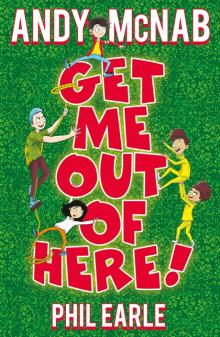 Get Me Out of Here!
Get Me Out of Here!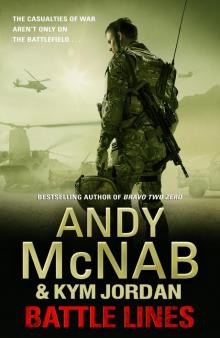 Battle Lines
Battle Lines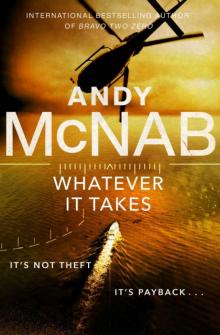 Whatever It Takes
Whatever It Takes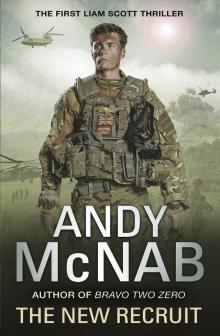 The New Recruit
The New Recruit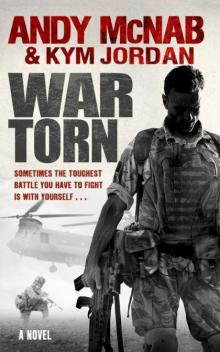 War Torn
War Torn Brute Force
Brute Force Crossfire
Crossfire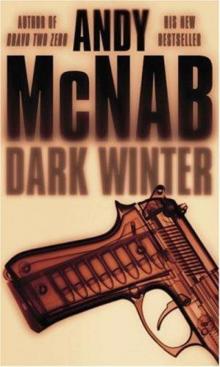 Dark Winter ns-6
Dark Winter ns-6 The Grey Man
The Grey Man Spoken from the Front
Spoken from the Front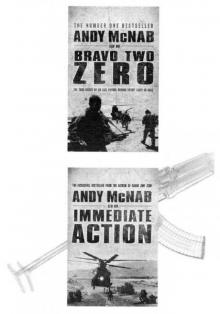 Meltdown
Meltdown Recoil
Recoil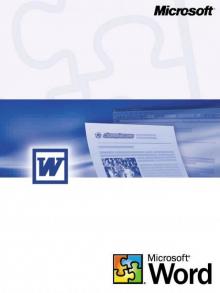 Nick Stone 1 - Remote Control.
Nick Stone 1 - Remote Control.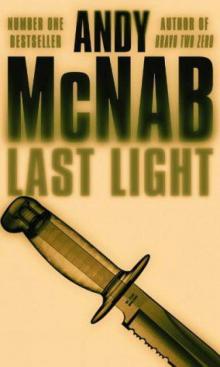 Last Light ns-4
Last Light ns-4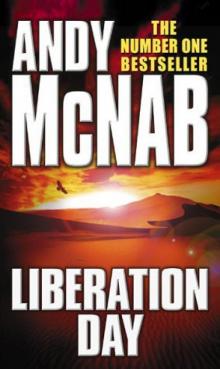 Liberation day
Liberation day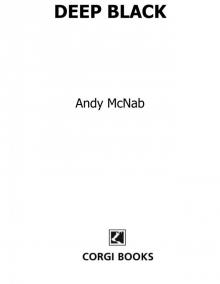 Deep Black
Deep Black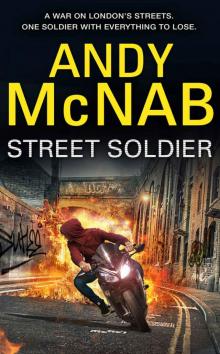 Street Soldier
Street Soldier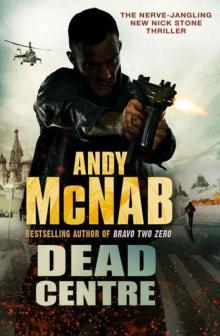 Dead Centre ns-14
Dead Centre ns-14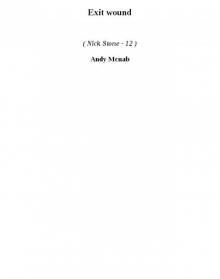 Exit wound ns-12
Exit wound ns-12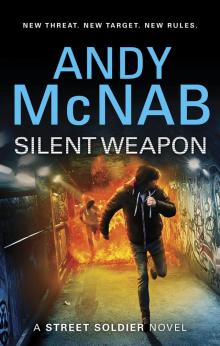 Silent Weapon
Silent Weapon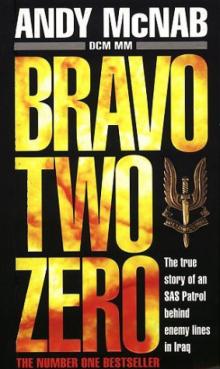 Bravo two zero
Bravo two zero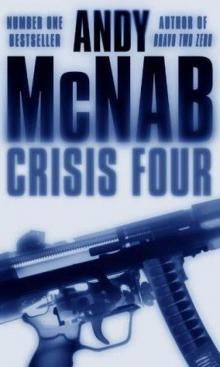 Crisis Four ns-2
Crisis Four ns-2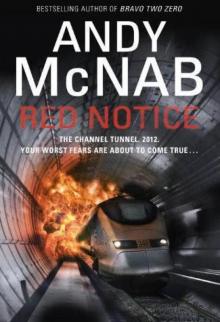 Red Notice
Red Notice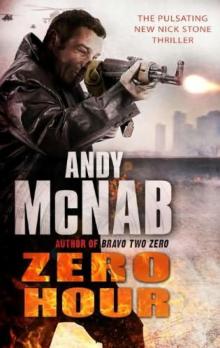 NS13 Zero Hour
NS13 Zero Hour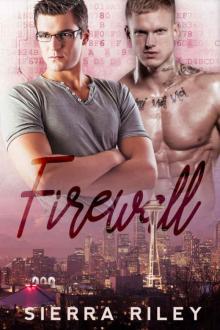 Firewall
Firewall Last Light
Last Light Aggressor
Aggressor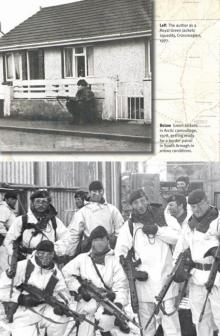 Seven Troop
Seven Troop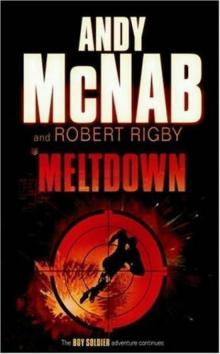 Meltdown bs-4
Meltdown bs-4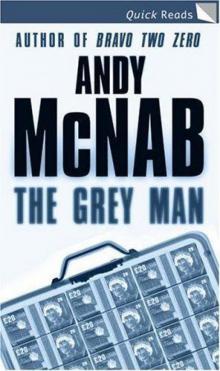 The Grey Man (quick reads)
The Grey Man (quick reads)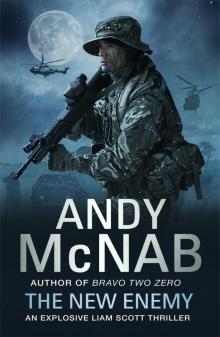 The New Enemy
The New Enemy Avenger
Avenger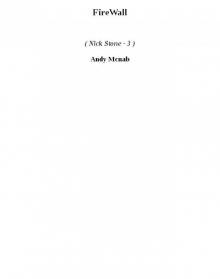 FireWall ns-3
FireWall ns-3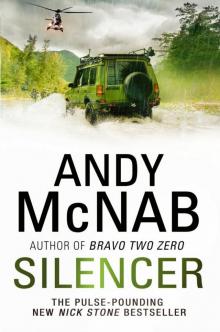 Silencer
Silencer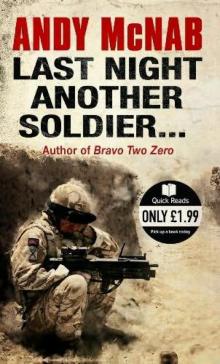 Last Night-Another Soldier…
Last Night-Another Soldier…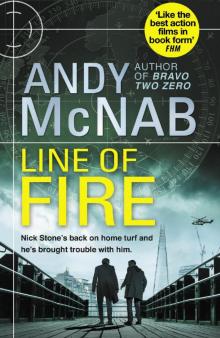 Line of Fire:
Line of Fire: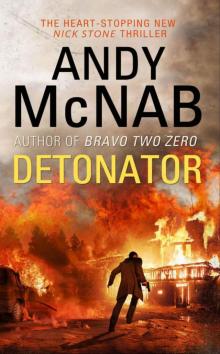 Detonator
Detonator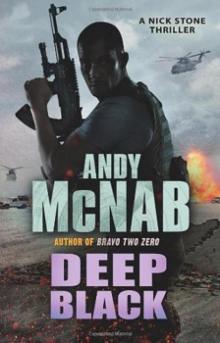 Deep Black ns-7
Deep Black ns-7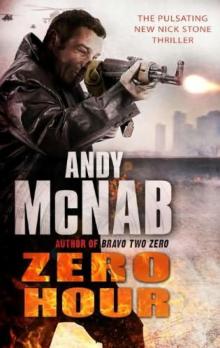 Zero Hour (2010) ns-13
Zero Hour (2010) ns-13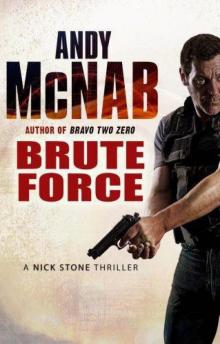 Brute Force ns-11
Brute Force ns-11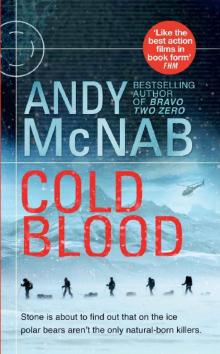 Cold Blood
Cold Blood Terminal Velocity
Terminal Velocity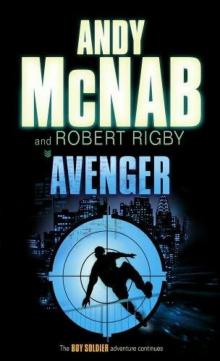 Avenger bs-3
Avenger bs-3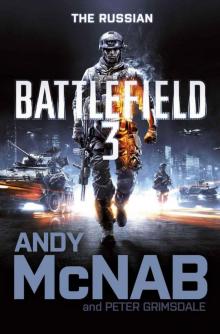 Battlefield 3: The Russian
Battlefield 3: The Russian DropZone
DropZone Zero Hour
Zero Hour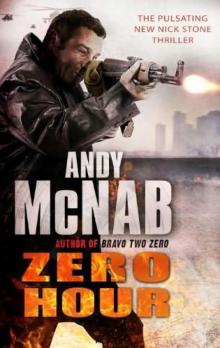 NS13 Zero Hour (2010)
NS13 Zero Hour (2010)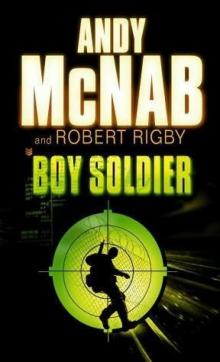 Boy soldier bs-1
Boy soldier bs-1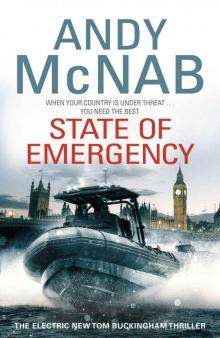 State Of Emergency: (Tom Buckingham Thriller 3)
State Of Emergency: (Tom Buckingham Thriller 3)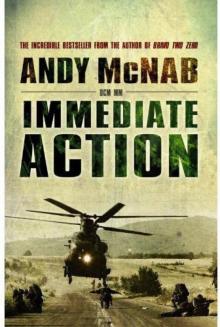 Immediate Action
Immediate Action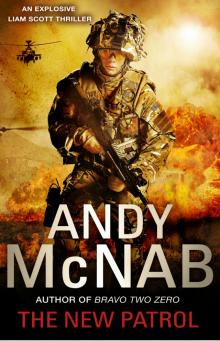 The New Patrol
The New Patrol Crisis Four
Crisis Four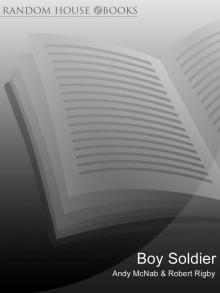 Boy Soldier
Boy Soldier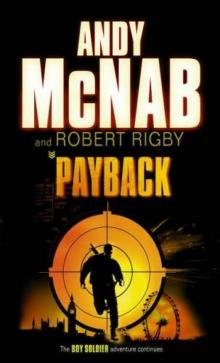 Payback bs-2
Payback bs-2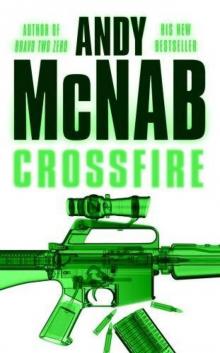 Crossfire ns-10
Crossfire ns-10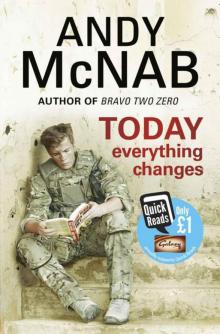 Today Everything Changes: Quick Read
Today Everything Changes: Quick Read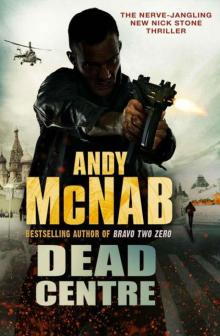 Dead Centre
Dead Centre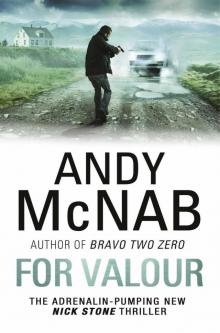 For Valour
For Valour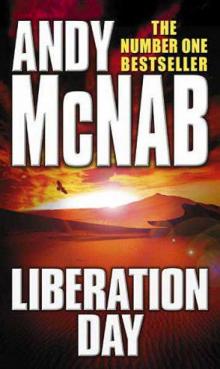 Liberation Day ns-5
Liberation Day ns-5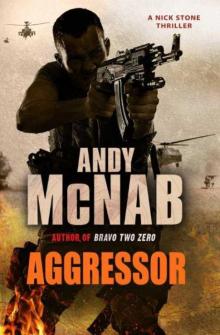 Aggressor ns-8
Aggressor ns-8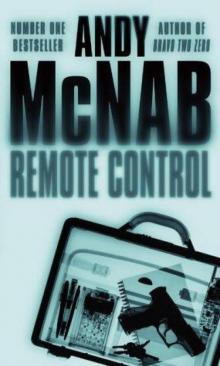 Remote Control ns-1
Remote Control ns-1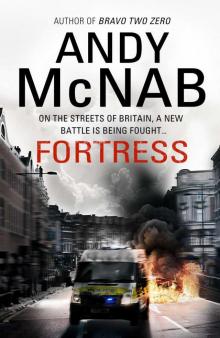 Fortress
Fortress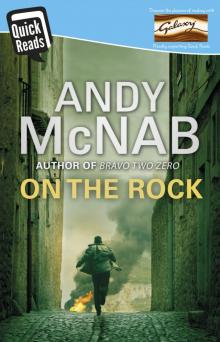 On the Rock
On the Rock Dark Winter
Dark Winter